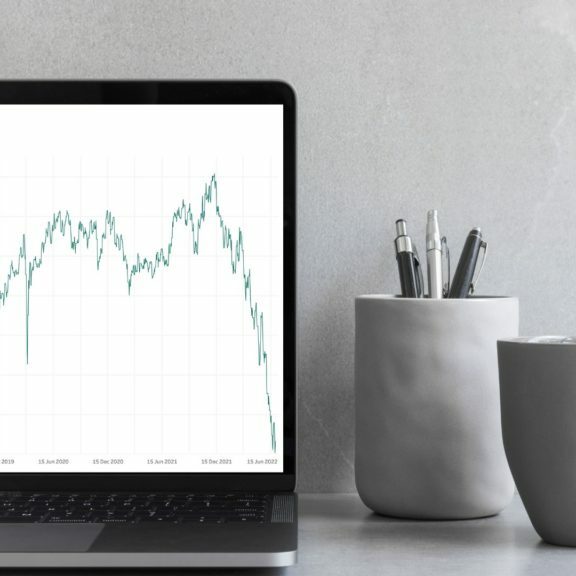If you’re considering a final salary pension transfer, it’s important to understand the benefits, the risks and everything in between before you make that all-important decision.
For the overall majority of people, transferring their Final Salary Pension to a SIPP is not in their best interests. It’s an incredibly high-risk area and it’s rare that the benefits will be replaced on a like-for-like basis.
Also known as a Defined Benefit Pension, Final Salary Pensions are often referred to as ‘gold-plated’ pensions as their value cannot be underestimated; they’re basically the crème de la crème of the pension world.
A Defined Benefit Pension or Final Salary Pension delivers an abundance of benefits, including:
- A guaranteed income for life
- Protection against inflation – the amount of money you receive goes up each year, normally in line with inflation. This protects the value of your pension over time.
- A survivor’s pension for your Spouse/dependent children if you die (the amount varies by scheme)
Scheme benefits differ from scheme providers but your defined benefit pension may also offer you
- A protected retirement age
- The option to take a cash lump sum on retirement.
That said, whether or not you should transfer is entirely dependent on your individual circumstances and goals.
For those with high net worth and other sources of income for their retirement, it could make total sense to transfer their Final Salary Pension.
Whilst Defined Benefit pensions are highly valued (and valuable) due to their guaranteed benefits, they are, by their nature, inflexible, especially when compared to the flexibility offered by Defined Contribution pensions.
For example, while you are guaranteed a certain level of money for life with a Final Salary Pension, you cannot balance this income for tax benefits.
Defined benefit pension are also less flexible when it comes to passing on wealth. With a Defined Benefit Pension you can’t pass it onto whoever you choose when you die (it must go to your spouse, and they will only receive 50% compared to the full amount). A defined contribution pension, on the other hand, can be left to any named beneficiary free from inheritance tax.
6 reasons you might consider transferring your Final Salary Pension:
There are many reasons you might consider transferring your final salary pension
- A high transfer value
- Potential to access a larger tax-free lump sum
- Flexibility to access drawdown from 55
- Early retirement
- Passing on your full wealth to whoever you choose when you die
- Ill health
- Tax-planning
However, it isn’t a simple case of ticking a ‘yes’ or ‘no’ box and it’s not possible to give a concrete answer to this question without doing a full analysis of your situation. But, as a general guide, there are several factors that will make it more or less likely that a transfer would be suitable for you, which you can consider before you explore further.
Want to read more about the risks and benefits of transferring your Final Salary Pension to a SIPP? Read our Guide to Final Salary Pension Transfer
Can I transfer my final salary pension to a SIPP?
Whether you Should transfer your Final Salary Pension to a SIPP becomes somewhat arbitrary if you are not able to do so and not all of those with a defined benefit pension have the option to transfer out of their scheme.
Whether you are able to transfer your Final Salary pension to a SIPP depends on the rules set by your pension scheme. If you have an unfunded pension – for example if you have an NHS, armed forces, fire service or police pension – then it is generally not possible to transfer out of it.
Saying that the magnitude of benefits that come with these pension schemes means that there are very few reasons that it would ever be worth leaving them.
On the other hand, if you have a private-sector Defined Benefit pension scheme, it is likely that you will be able to transfer out of it – although it isn’t a given. Every pension scheme is different, and you need to check with your pension scheme administrator before you attempt any transfers.
It’s also crucial to look into the financial advice available to you.

If your Defined Benefit pension transfer is worth more than £30,000 you’ll need advice that includes a personal recommendation from a qualified pension transfer specialist in order to be able to move your pension.
A Final Salary Pension Transfer is a highly in-depth process, and there are only a small number of specialists offering advice and services in this area. You will need a personal recommendation in order to carry out a transfer; this recommendation subsequently hands all liability over to your advisor, something that more and more providers are hesitant to commit to.
Look out for firms who have signed up to the Pension Gold Standard and always ensure that you are dealing direct with a Pension Transfer Specialist and that your case is not being farmed out to a third party or simply being rubber-stamped by someone you’ve never met.
At 2020 Financial we offer tailored advice and individual reports for Defined Benefit Pension Transfers. We are qualified pension transfer specialists with over 17 years experience in Defined Benefit pensions and we also hold the Pension Transfer Gold Standard which holds us to a higher standard, ensuring you get the best advice available.
Final salary pension versus SIPP: Which is best for you?
This really does come back to your personal and financial situation.
For example, what is your attitude to investment risk?
A Final Salary Pension is guaranteed income, with the company and/or pension scheme provider taking on all of the investment risk. Sure, the market could go up or down, but you will always take home the same amount of money.
Alternatively, with a SIPP you are exposed to investment risk and all the implications that come with it. While the value of your investment could shoot up, it could also drop drastically.
In addition, with a SIPP you are at risk of pulling in unregulated investments. You are solely responsible for checking that every single investment is 100% legitimate and covered by the FCA; if not, you could find yourself in a very sticky situation.
Our Pension Specialist Simon Garber says “I’m seeing a growing number of people who want to transfer their final salary pension to a SIPP and plan to self-manage their investments. Often, they have been falsely promised high returns and low or no risk they don’t realise the investment they are going into is unregulated and they run the risk of their entire investment disappearing”.
It’s really important to speak to a regulated specialist before you begin any transfer.
Not all transfers are bad. We’ve helped many customers successfully achieve their retirement goals without overexposing themselves to risk.
Accessing your pension flexibly
There are legitimate reasons why you may want to transfer your pension:
- You want to retire early
- You want to access your tax-free cash once you hit 55
- You can make better use of your money outside of a defined benefit arrangement
- You want to manage your wealth and legacy in a more tax efficient way
The lack of flexibility around Final Salary Pensions also means that you can only draw what your company says you can draw when they say you can.
Retiring early is often a highly unattractive prospect when you have a defined benefit pension because of the benefits you have to give up in order to retire early.
Your pension scheme administrator may be able to provide you with an early retirement estimate – again it’s really important to get professional advice before you give up any guaranteed benefits.
Remember that the inflexible nature of a Final Salary Pension can also be a major benefit: it means that you can receive guaranteed, inflation-protected income for your entire life. It will work in your favour if:
- You are reliant on your pension to provide for you in retirement
- You are uncomfortable with investment risk
- You are worried about running out of money in retirement
- You know that you will lose valuable benefits by transferring
It’s also vital to remember that to manage such a considerable chunk of money (and for a large period of time!) you need serious investment experience.
While many people think that they have investment experience, from managing an ISA or similar, the fact is that your pension investment is a whole other ball game. You need to ask yourself; do I really have, not only the knowledge but the aptitude for stress and responsibility that comes with managing this enormous investment over the long-term?
Fundamentally, it comes down to balancing out the pros and cons; and this is where a financial advisor is worth their weight in gold. Yes, it can be costly, but it could stop you from making a bad decision and losing a huge deal of money.
Simon Garber – our Pension Transfer Specialist – will not only help you with initial decisions but also with a holistic financial plan for life, quarterly checks, rebalancing, access to industry-leading technology and any support and guidance you need throughout your entire pension investment journey.
We also have access to the best investment brains in the UK, and hold quarterly meetings where we consider the short and long term risks and predictions that could impact your investment. It offers an extra layer of protection that you cannot get when spinning all the plates on your own.
Transferring my final salary pension to a SIPP
When you transfer your Final Salary Pension you go from an investment that is guaranteed for life and protected against inflation to one that is subject to all of the risks of a standard investment. There are a number of factors that affect whether or not it might be suitable for you to transfer your final salary pension including (but not limited to):
- Your attitude to risk
- Your aptitude for risk (i.e. can you cope if your pension value goes down)
- Your age
- Your short & long-term goals
- Your investment experience
- The value of other assets/pension/wealth you hold
We also recommend that you ask yourself the following questions before taking any further steps:
- Are you married or do you have dependent children?
- Do you have relevant investment experience?
- Are you comfortable with investment risk?
- Is your DB pension a supplementary income source that you could comfortably live without?
- Is your DB pension protected by the PPF?
- Can you achieve your stated goals staying within your existing DB scheme?
- Is there a genuine reason for moving your pension?
- Will moving your pension allow you to achieve a goal that you couldn’t have achieved otherwise?
- Would you be able to cope financially without the guaranteed income?
- Do you understand the true value of the asset and benefits you are giving up, including the future value?
- Are you comfortable knowing that the value of your pension could fall?
- Do you have a spouse who would need a guaranteed income if you were to die early?
- Are you confident you have access to the right investment and pension advice?
- Do you have a plan to manage your money in a personal pension arrangement that protects the value of your pension and ensures you’ll have an income for life.
If you are still confident that a Final Salary Pension Transfer is the right choice for you, then please enlist the support of a Financial Advisor and Pension Transfer Specialist. You can get in touch with the 2020 Financial team to book an appointment with Simon to discuss your personal and financial situation, your goals, circumstances and hopes for retirement.
When is the best time to transfer a final salary pension to a SIPP?
Deciding when is the right time to transfer a Final Salary Pension can be difficult, especially since the decision is irrevocable.
The fact is, if a pension transfer is appropriate, there’s no right or wrong time to transfer your pension. If you have a solid rationale and the numbers stack up there’s no reason not to do it earlier. That being said, there’s no rush to do it either. You can’t reverse your decision to transfer once you’ve done it, so better to wait and be sure.
Since you can’t access your money until you’re 55 anyway, common sense would suggest holding off until you’re older and have a clearer idea of what you want your retirement to look like, in fact, many firms will not offer a positive recommendation to transfer for those under 50 years old.
A joint research paper by Royal London and LCP showed that transfer values rise the closer you get to your scheme’s retirement age – it’s worth asking yourself whether a pension transfer is a decision that needs to be made right now, or whether you could postpone it until you get closer to retirement.
On the flip side, if you transfer your pension into a SIPP earlier and experience favourable investment returns, it could be possible to offset a slightly lower transfer value with investment growth.
It’s important to focus on your goals and the facts in front of you rather than try and chase a higher transfer value or fixate on finding the best time to transfer your final salary pension. We’ve seen potential clients get burned trying to chase higher transfer values, they’ve seen changes to the market and requested a new CETV thinking it would be higher and it’s come back several tens of thousands of pounds lower.
Equally, we’ve seen clients revisit a pension transfer a year down the road to be offered a transfer value that is several tens of thousands of pounds higher… Simply put, it’s not something you can predict.
How much will it cost to transfer a final salary pension to a SIPP?
Final Salary pension transfer advice is highly specialised advice in a high-risk area, think if it as the brain surgery of financial advice if you will. Advice is highly regulated area and recent changes to the industry mean there are fewer specialists operating in this area than ever before. As such, expect to pay anything up to 4% of your transfer amount for advice.
Most firms have a minimum charge for this kind of work starting at around £2000.
Transfer Advice for Defined Benefit Pension transfers is usually tapered, with those with higher transfer amounts paying a smaller percentage than those with a smaller pot.
The full cost of a Final Salary pension transfer will depend on a number of factors:
- how much you pay for transfer analysis and advice,
- what type of investment you choose afterwards
- and how much you pay for ongoing advice.
Visit our fees page for full details of our Defined Benefit Pension Transfer Advice Fees.
It’s important to remember that just because you have had advice doesn’t mean that you can move your pension. Firms cannot transfer your pension if they do not believe it’s in your best interests to do so and the number of pension providers that are prepared to accept a pension transfer with a negative recommendation have dwindled.
As of June 2021, Pension provider AJ Bell, who used to accept pension transfers with a negative recommendation from a pension transfer specialist, no longer do so, leaving those with a negative recommendation little choice but to stay in their pension scheme.
If you’d like to speak to our Pension Transfer Specialist, Schedule a free call today and find out how we can help you.



